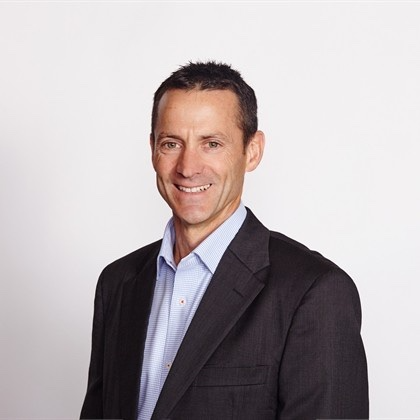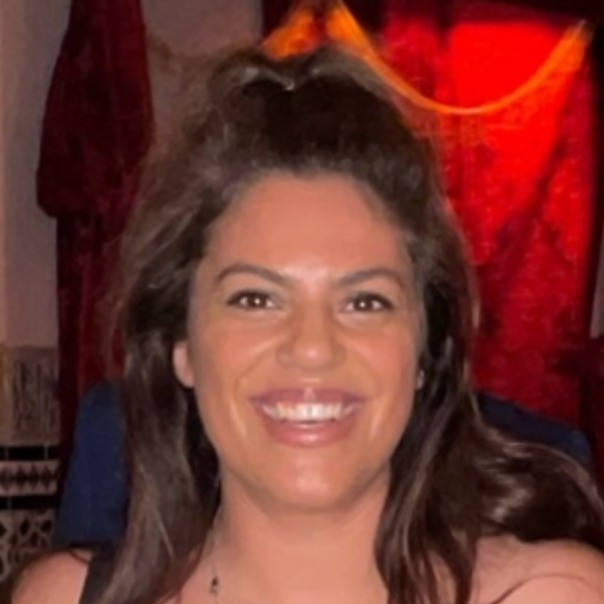Portfolio COO Joe Westhuizen shares his keys to success
What does it take to sustain top performance in a team so that together, you can achieve your biggest goals?
It’s a question that Joe Westhuizen has given a lot of thought. He serves as a Portfolio COO at Volaris Group, known for his people-first leadership, global perspective, and commitment to driving sustainable growth. With experience leading both startups and large enterprises, his approach is rooted in adaptability, curiosity, and respect. He thrives on building cohesive teams, navigating complex challenges, and creating environments where talent can thrive.

Westhuizen’s journey with Volaris began after the acquisition of Baseplan, when he transitioned from General Manager to Group Leader, and now Portfolio COO. He believes the key to success lies in assembling diverse, capable teams and empowering them with the autonomy and support they need to succeed.
He’s passionate about scaling businesses, developing future leaders, and fostering a culture of collaboration. For Westhuizen, success is always a team effort — and the strongest teams are built on trust, clarity, and shared purpose.
You’ve led and grown companies across multiple regions. What leadership principles have been most critical to your success?
Leadership, at its core, is about people. I believe in treating people with respect and dignity, just as I would want to be treated. Being inquisitive and committed to continuous learning has shaped my approach, as has embracing challenges rather than shying away from them. Flexibility in working across different countries and continents has been invaluable.
Most importantly, I recognize that success is driven by the team, not the individual. Taking a balanced approach to life—prioritizing family, mental, and physical well-being—ensures sustained leadership effectiveness.
What excites me most about my role at Volaris Group is the ability to learn new things, take on different challenges and work beside a diverse and talented group of people. I thrive on change and challenges, and this role provides both.
What initially brought you to Volaris Group, and how has your role evolved since joining?
I joined Volaris Group through the acquisition of Baseplan. My journey began as a General Manager, where I became deeply involved in integrating new companies into our portfolio.
From there, I transitioned into a Group Leader role before stepping into my current position as Portfolio COO. Each stage has provided new challenges and opportunities to drive growth across the portfolio.
Having worked in both startups and large enterprises, what are the biggest differences in how you approach leadership in each environment?
Startups demand agility and a higher tolerance for evolving risks, whereas larger enterprises require strong people skills and a degree of political savviness. Leading effectively in both settings requires understanding these nuances and adapting accordingly.
Whilst I do believe in situational leadership — recognizing that different environments require different approaches — some foundational leadership traits remain constant. Emotional intelligence, a genuine commitment to developing people, strong talent identification skills, and the endurance to navigate challenges are all critical.
You emphasize hiring people smarter than yourself. Can you share an example of how this philosophy has shaped a team’s success?
My current team exemplifies this philosophy. Each General Manager brings unique expertise that surpasses my own in their respective areas. For example, Simon Nugent and Patrick Stephens possess deep technical and product knowledge. Craig Evans excels in sales and marketing. Lai-Peng Leong, our Portfolio CFO, has an unmatched grasp of finance.
The strength of our team lies in the sum of these individual talents — each person’s expertise enhances the collective team and drives cohesive success.
When assembling a winning team, I look for people who demonstrate respect, teamwork, humility, a willingness to learn, and emotional intelligence. These qualities create a foundation for collaboration and success.
You’ve successfully scaled companies at various stages — for example, at Baseplan Software Group, you helped drive productivity and profitability for customers. What lessons did you take from that experience that you apply to your work today?
Scaling a business is about understanding the levers that drive efficiency and growth. Whether assessing operations or improving customer journeys, the key is to evaluate all available options and activate multiple levers to achieve the most sustainable outcomes.
A key factor that determines whether a business is ready for growth is its people. A great strategy is meaningless without the right team to execute it. Ensuring you have strong leadership, clear direction, and a culture that supports innovation and accountability is essential for sustainable growth.
How do you foster an entrepreneurial mindset within established companies under the Volaris Group umbrella?
It’s important to give leaders the space and respect to lead their companies. I aim to support and assist in big doses, and be prescriptive only as needed.
I often compare this approach to IKEA’s philosophy — innovation and creativity thrive within structured operational frameworks.
Empowerment and strategic direction go hand in hand when you have the right people in place. I focus on supporting and assisting in significant ways while ensuring everyone understands that our collective success outweighs individual contributions.
Technology has always played a supportive role in business growth. However, with AI and other advancements, technology must now be at the forefront of strategic decision-making.
What’s one of the biggest challenges leaders face when scaling a business, and how do you navigate it?
One of the biggest challenges when scaling a business, apart from having the right team in place, is finding the optimum cadence at which a team can sustain its effort. The way to navigate it is to engage and measure.
My advice to leaders is to engage with your team, understand how they are doing, measure your progress, and adapt accordingly.
You’re known for maintaining a strong work-life balance. How do you prioritize work, family, and fitness while leading at a high level?
It requires effort and intentionality. There is no perfect formula, but by consistently prioritizing what matters — work, family, and health — I create a sustainable balance. Simply put, I make the effort and invest the time.
I’m also a strong believer in continuous learning. One book that has significantly shaped my approach to business and leadership has been Long Walk to Freedom by Nelson Mandela. He was a person who embodied resilience, leadership, and the power of vision.
If you could give one piece of advice to emerging leaders looking to build and scale successful teams, what would it be?
Success is a result of great teams. My advice to leaders would be to prioritize getting the right people in the right roles and invest in building strong team dynamics.

